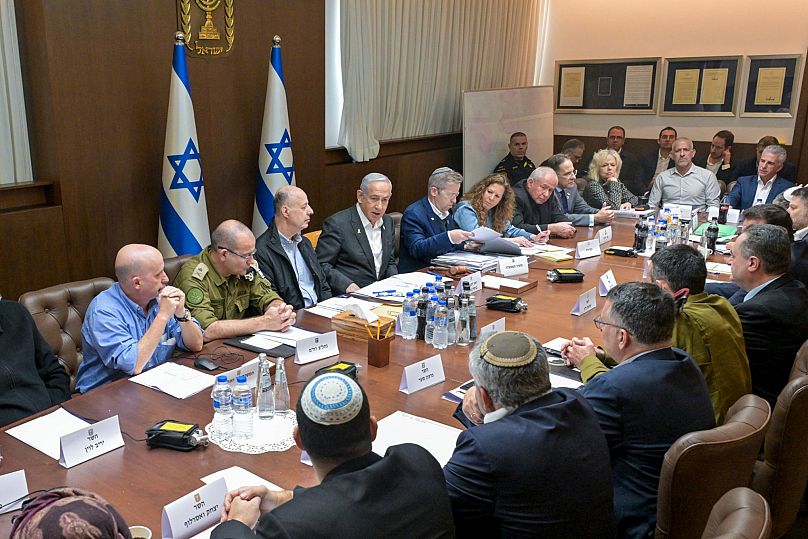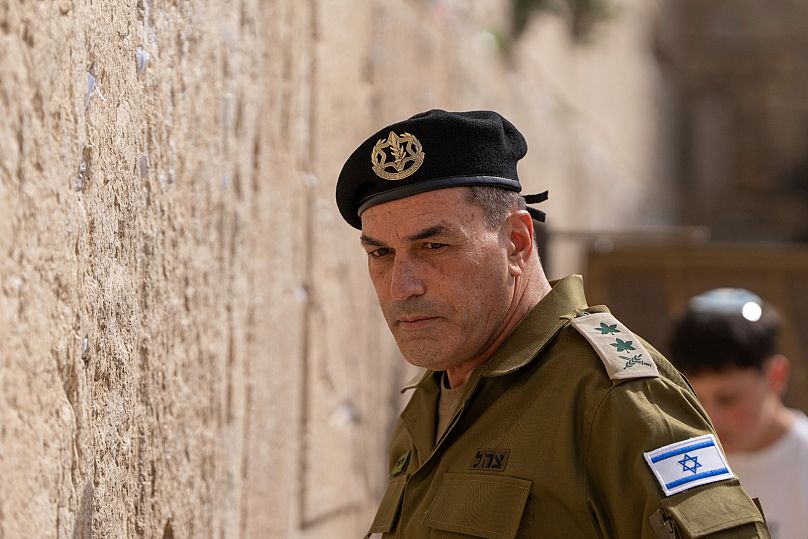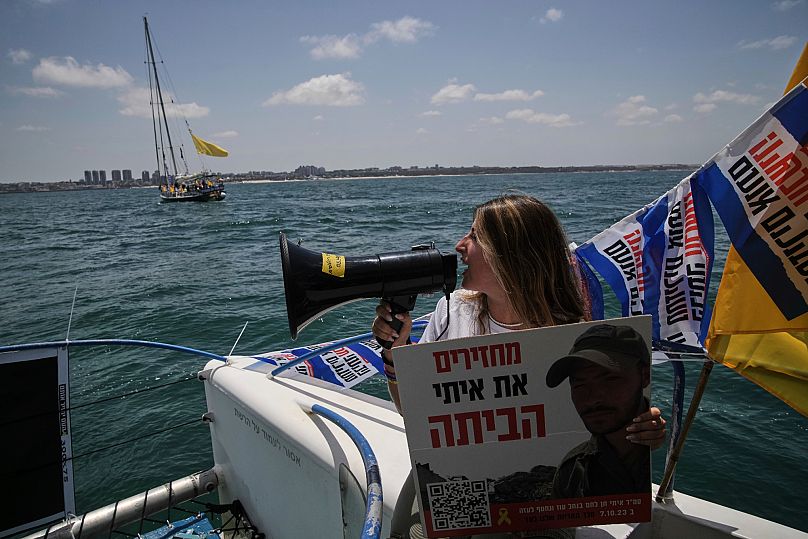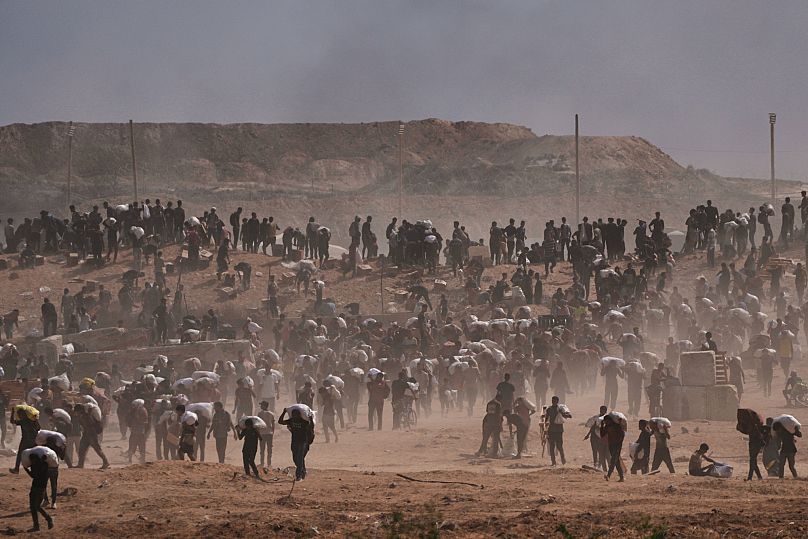Israel's security cabinet debates expanding Gaza operation despite opposition
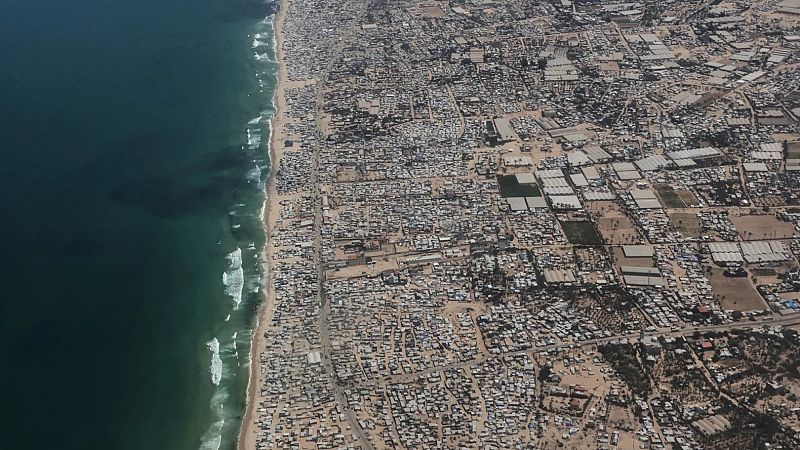
Israel's security cabinet is meeting to discuss the possible expansion of its military operation in Gaza, a move that is being met with significant opposition within Israel, including from the IDF.
Israeli Prime Minister Benjamin Netanyahu has been meeting top advisers and security officials this week to discuss what his office said are ways to "further achieve Israel's goals in Gaza" after the breakdown of ceasefire talks last month.
An Israeli official familiar with the matter said the security cabinet is expected to hold a lengthy debate and approve an expanded military plan to conquer all or parts of Gaza not yet under Israeli control.
The official, speaking on condition of anonymity pending a formal decision, said that whatever is approved would be implemented gradually and in stages, with the idea of increasing pressure on Hamas.
Such a step would likely trigger new international condemnation of Israel at a time when Gaza is facing widespread famine.
Opposition from within the military
Crucially there has been opposition from within the IDF, with Chief of the General Staff Lieutenant General Eyal Zamir warning that the plan would endanger the lives of the hostages and further stretch Israel's military.
"A culture of disagreement is an inseparable part of the history of the people of Israel; it is a vital component of the IDF’s organisational culture, both internally and externally," Zamir said in remarks released by the IDF.
"We will continue to express our positions without fear, in a substantive, independent, and professional manner."
Zamir has repeatedly clashed with the security cabinet in recent days, notably over the proposal to expand the operation in Gaza.
That prompted Netanyahu to say in a post on X that if he objected to the plans, he could resign.
"We are not dealing with theory; we are dealing with matters of life and death, with the defence of the state, and we do so while looking directly into the eyes of our soldiers and the citizens of the country," Zamir said, who claimed the IDF is "now approaching the final stages" of the war against Hamas.
"We intend to defeat and collapse Hamas. We will continue to act with our hostages in mind, and we will do everything to bring them home," Zamir said.
Concerns that an expanded offensive could put the lives of the remaining hostages at risk have also been expressed by their families in Israel.
On Thursday morning, almost two dozen relatives of hostages set sail from southern Israel towards the maritime border with Gaza, where they broadcast messages from loudspeakers on boats to their relatives in the Strip, denouncing Netanyahu's plan to expand military operations.
Yehuda Cohen, the father of Nimrod Cohen, an Israeli soldier held hostage in Gaza, said from the boat that Netanyahu is prolonging the war to satisfy extremists in his government and to prevent it from collapsing.
"Netanyahu is working only for himself," he said, pleading with the international community to put pressure on Netanyahu to stop the war and save his son.
Aid organisations denounce Israeli policies
Meanwhile, two major international aid organisations published reports on Thursday denouncing Israeli policies in Gaza.
Human Rights Watch (HRW) called on governments worldwide to suspend their arms transfers to Israel in the wake of deadly airstrikes on two Palestinian schools last year.
HRW said an investigation did not find any evidence of a military target at either school.
At least 49 people were killed in the airstrikes that hit the Khadija girls' school in Deir al-Balah on 27 July 2024 and the al-Zeitoun C school in Gaza City on 21 September 2024.
Doctors without Borders (MSF) accused the Gaza Humanitarian Foundation's food distribution sites of causing "orchestrated killing" rather than handing out aid.
According to the United Nations, more than 850 people have died near GHF sites in the past two months.
MSF runs two medical clinics close to the GHF sites and said it had treated nearly 1,400 people wounded nearby between 7 June and 20 July, including 28 people who were dead upon arrival.
GHF did not immediately answer a request for comment but has previously said its security contractors have not shot anyone at its sites.
Yesterday


